That’s right everybody. It’s CRIME TIME! Queue the 1990s-esque intro with kids striking poses with their arms crossed and hands on their hips looking “tough” with sideways hats on while Pearl Jam’s guitar intro from “Even Flow” plays and the word ‘CRIME’ flashes across the screen in neon lettering. It’s time to talk about something we sort of look past or don’t really discuss when it comes to festivals and traveling. While festivals do amazing jobs promoting the local landmarks of the town, they sometimes don’t mention the ‘shadier’ not so good areas. Let it be known that this article is not to be discriminatory of any race, ethnicity, gender, religion, or any of the sort. It is merely to meant highlight a topic that not many festivals or performers think about when they travel to a new town and to bring awareness to the fact that crime is everywhere and you should keep that in mind when going somewhere you’ve never been before. Everyone gets so caught up in the excitement of what’s to come that they aren’t thinking about what could go wrong right now.
This has never been something that I have heard a festival come out and say outright. Mainly because talking about the bad things isn’t really something you want to highlight. It’ll make people not want to come to your festival, right? Yes and No. The sad truth is that the ‘bad’ happens everywhere. Crime exists everywhere you go. It’s next door, down the street, on the train or bus and everywhere you look. However, half the battle is being AWARE of it and knowing where it’s most prevalent. I’m not saying put up street advertisements or marketing in your festival promotions that there are certain places you shouldn’t go, but just by word of mouth you could be keeping a lot of people safe.
If you’re a performer and you’re reading this, just be aware of your surroundings and keep in mind that you are in a new town and you might not know the specifics of what goes on in that area. That means you should ASK where the best places to go are and where the best places to avoid are. There is no harm in asking. We’re talking about safety here. There are certain parts of Chicago that I will never go to or travel to on the train at night. Why? Because the crime statistics and the everyday news indicate there’s a damn good chance I’ll get robbed, beaten up, or worse. That’s not a dig at anyone who lives in those areas, but a fact reinforced by the local news and crime reports.
Furthermore, I learned this first hand at a festival recently. I remember we decided to walk around and see the sights and sounds of the city. We practically screamed “WE’RE TOURISTS” as we waltzed around pointing at things uttering “ohhs” and “ahhhs.” It was the middle of the day and we were excited to wander so we weren’t really on alert for anything. Note: Anything can happen at any time; especially when you least expect it. Unfortunately, we went down the wrong block, which resulted in us being followed for the next two blocks by two guys who were sending off the tell-tale signs that they were going to jump us. Luckily, we spotted them, stopped walking, and were in an open area looking right at them so their element of surprise sort of went right out the window. Once we made eye contact with them they slowed their walking down and crossed the street. The one guy who was trailing behind ran up to his friend and put his hands in the air while mouthing, “What happened?” Now, I could be completely wrong. They could have been coming up to say “hey welcome to our city let us take your picture”, but given the mean looks on their faces, the clinched fists in their hands, and everything I’ve ever heard about muggings I would have to argue otherwise. Later I would discuss this with local performers who said, “oh yeah you shouldn’t walk around there.”
Another way to fully grasp the issue is to look at it from the criminal’s perspective. If I was a criminal (I’m not but if I was), I would rather rob or steal from someone who doesn’t live around the area rather than somebody who does. Why? Because the people traveling are unsuspecting and they aren’t going to tell the police, “Hey I saw him last week walking down State Street!” Distancing yourself from the crime is bad guy 101. This is why criminals travel across the city, steal someone’s iPhone on the train, and then go back to where they live which is 10-15 miles away. By you being the one who is traveling, you’ve just made their job a lot easier. In short, for the criminal, you’re a better target because you’re not from around there and you’re not suspecting it.
In conclusion, if you’re traveling to a festival and you’re going to go walking around the city please make sure to ask the local performers where the best places to go are as well as the not so good places. If you’re a festival producer or local performer, pass any and all information you may have about troublesome areas around town so as to keep everyone safe. As stated before, the sad reality is that crime is everywhere, but we can most certainly combat that with awareness. Being knowledgeable and aware is going to be all the difference. It’s better to know than to not and wish you had later. Keeping everyone safe and knowledgeable about what is happening in your town should be at the top of the list of the many wonderful things you’re offering to your performers.
-
Ryan is a graduate of iO, The Second City Conservatory, and the Annoyance Theatre in Chicago. Ryan performs improv comedy with his independent team Switch Committee as well as on the Playground team Desperado. In addition, he is an Associate Producer for Big Little Comedy, which is responsible for the Big Little Comedy Festival each year. In 2013, he completed an entire month of comedy by performing 31 days in a row for the month of January. He’s a frequent blogger (here, The Second City Network, and the iO Water Cooler) Instagramer, Pinterester, and Tweeter in his spare time. You can follow the madness @TheRyanNallen.





 If you run a festival, chances are you started because you’d been to a festival you enjoyed. As a young performer, it’s awesome to get to perform for a new audience and see new shows. It’s exciting to get workshops from great instructors you don’t have access to. Those are usually the take backs from anyone’s first festival – because those things are great. As performers grow, those things are still wonderful, but they have new needs as well.
If you run a festival, chances are you started because you’d been to a festival you enjoyed. As a young performer, it’s awesome to get to perform for a new audience and see new shows. It’s exciting to get workshops from great instructors you don’t have access to. Those are usually the take backs from anyone’s first festival – because those things are great. As performers grow, those things are still wonderful, but they have new needs as well. 
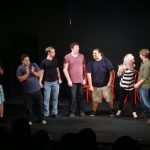
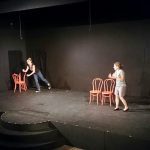
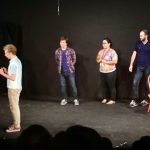
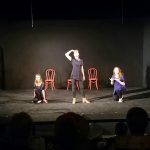
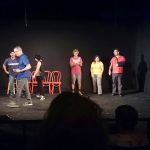
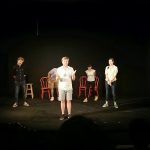
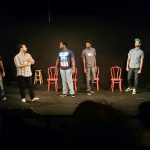


![thumbnail_1399617601-300x300[1]](http://www.nationalimprovnetwork.com/wp-content/uploads/thumbnail_1399617601-300x3001.png)



